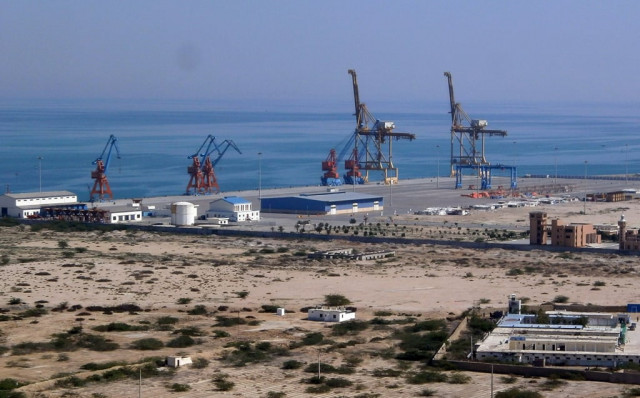Rising costs at Gwadar Port
In the case of Gwadar Port, it appears that misappropriation of funds have played a key role in rising cost of project

the ballooning of costs at Gwadar Port, from Rs8 billion six years ago to Rs100 billion today, raises very serious questions about both the planning and execution of the project. PHOTO: AFP/FILE
There are two possibilities: either the initial planning process was flawed and produced an unrealistically low number for the costs, or the project is being bungled to the point where costs have skyrocketed. We suspect that the real reason is a little bit of both, and we find both causes to be worrying. On the first front, the government’s consistent inability to plan for the long run is by now a running theme of the state. Even more disappointing is the complete lack of seriousness with which the planning process is taken in most government departments.
But in the case of Gwadar Port, it appears that malfeasance and misappropriation of funds have also played a key role in the rising cost of the project. In particular, the Water and Power Development Authority’s decision to purchase transmission equipment that is in clear violation of the plan reeks of corruption and merits investigation. Beyond the corruption, however, there also appears to be gross incompetence at play, particularly on the part of the railway ministry. Despite having been paid, it is yet to lay railroad tracks to the port.
Given the importance of Gwadar Port to the economy, however, the federal government should not wait for government departments to get their act together. We recommend the prime minister appoints an individual who is then given authority over all relevant government departments to get the job done. Otherwise, another generation of Pakistanis will continue to read about the mythical Gwadar Port that will one day come into being.
Published in The Express Tribune, March 24th, 2014.
Like Opinion & Editorial on Facebook, follow @ETOpEd on Twitter to receive all updates on all our daily pieces.














COMMENTS
Comments are moderated and generally will be posted if they are on-topic and not abusive.
For more information, please see our Comments FAQ